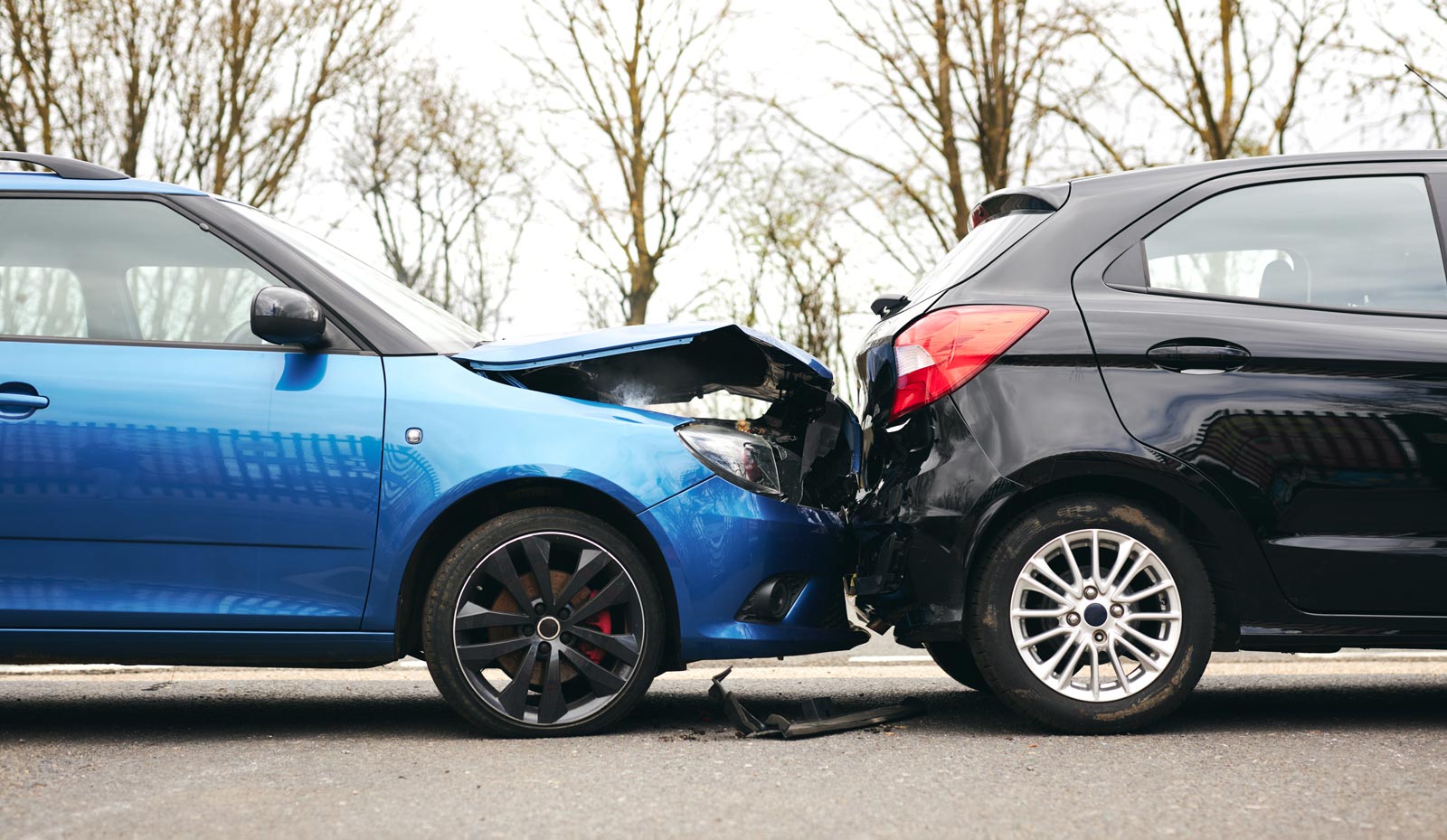The kids are out of school, and your teen drivers are hitting the road for camping trips and days on the beach. Getting the kids out of the house is nice, but did you know that safety experts call the period between Memorial Day and Labor Day the “100 Deadliest Days” of summer? During these 100 days, an average of 260 teens die each month in car crashes, according to the highway safety advocates at We Save Lives. This summertime fatality rate is 26% higher than the rest of the year.
Continue reading to better understand some of the contributing factors in teen crashes, how to help keep your teens safe this summer, and what you need to do if your teen has been in an accident.
Risk Factors for Fatal Teen Crashes
Distracted Driving
Distracted driving is a major factor in crashes for both teen drivers and adults. Distractions caused by other passengers in the car and cell phone usage are among the top causes of teen distracted driving.
Many teens see their parents talking on the phone or texting while driving. We Save Lives states that 91% of parents admit to using their cell phones while driving in a car with their teens. How can we expect our children to practice safe driving if we don’t set a good example?
RELATED ARTICLE: Distracted Driving Laws Are Great – But People Keep Causing Crashes
Speeding
Speeding is another factor that contributes to many crashes regardless of driver age. However, teens are even more likely to speed than adults, which can cause deadly collisions when combined with their tendency to follow other vehicles too closely.
RELATED ARTICLE: Speeding and Car Collisions: A Dangerous Combination
Nighttime and Weekend Driving
Nighttime and weekend driving puts teens at further risk for fatal crashes according to the CDC. Around 50% of all teen vehicle fatalities occur at night or on Fridays, Saturdays, and Sundays.
Driving Under the Influence
Alcohol-related crashes are among the most well-known causes of teen driving fatalities. All it takes is one drunk driver with a car full of other partied-out teens to cause a tragic accident.
Seatbelt Usage
Not wearing their seatbelts is another contributing factor in teen fatalities. Seatbelts are sometimes considered “uncool” by teen drivers, and other times they are forgotten amidst the excitement and distractions of a vehicle full of friends.
Inexperience and Critical Decision Making
Sometimes it just comes down to practice, experience, and judgment. According to the CDC, teens are more likely to underestimate or overlook dangerous situations and make critical decision errors. These decisions are due to both their driving inexperience and cognitive development.
While abstract and deductive reasoning skills begin to develop around 12 years, the human brain—and our ability for critical decision making—does not fully develop until 25 years of age.
“Every parent hopes their teen will never need to know what to do after a car crash. But it’s important for you to educate your teen driver on what to do in these difficult situations.”
Keep Your Teens Safe This Summer
The 100 Deadliest Days of summer are dangerous for your teens but keeping them pent-up in the house all summer isn’t practical—or conducive for your mental health. So how can you encourage your teens to go out and enjoy themselves while keeping them safe?
-
Set a Good Example
Even if you think your children never listen to you, they are watching, learning, listening, and evaluating everything you do. Talk to them about the dangers of driving and set a good example of what to do and what not to do when driving. In other words, follow Texas’ rules of the road and put your phone away.
-
Limit Their Passengers
Texas teen and novice driving laws forbid teens with intermediate level licenses (16 to 18-year-olds) from driving with more than one passenger under the age of 21. Research suggests that the more passengers in your teen’s car—regardless of age—the higher the risk of having a crash. As a parent, you should insist that your child follows our state’s graduated license laws, and limit the number of friends your teen is allowed to drive around. Finally, you should stress the importance of not riding in a friend’s vehicle if it’s already packed with teens.
-
Use Available Technology
That’s right; there’s an app for that. Ford, Chevrolet, Volkswagen, and other companies have technology that can help you protect your teen drivers. Some devices can place limits on radio volume, remind drivers to put on their seatbelt, prevent excessive speeds or alert the driver if they are speeding, or even send parents driver report cards about their teen’s driving.
-
Enforce Driving Curfews
In Texas, new drivers must have ten hours of practice driving at night, and 16-year-olds with an intermediate license cannot drive between midnight and 5:00 am. These rules are in place because nighttime driving is extremely dangerous for teens.
Whenever possible, limit your teen’s solo nighttime driving, but make sure to continue to practice driving at night with them, even after they get their permit, to help them gain the extra experience they need to stay safe.
Accidents Happen. Does Your Teen Know What to Do?
Every parent hopes their teen will never need to know what to do after a car crash. But it’s important for you to educate your teen driver on what to do in these difficult situations. Consider having a discussion once they obtain their learner permit or even store a checklist in their glovebox.
Make sure your teen driver knows that in the event of a car crash, they need to:
- Note the exact time of the crash.
- Move the vehicle off to the side and out of traffic, if possible.
- Determine whether any injuries require emergency medical care.
- Call 911 to report the crash.
- Call you. Moving the vehicle out of harm’s way and calling the police should always come first.
- Make no statements regarding fault to the other motorists or witnesses.
- Cooperate with the police, explaining what happened without admitting to or assigning fault.
- Take photos of the scene and vehicles involved in the crash.
- Collect the personal and insurance information of the other drivers involved, and the contact info for any witnesses.
My Teen Was in a Car Crash, What Do I Need to Do?
Regardless of whether the crash was their fault, it’s important not to get mad if your teen driver tells you they were in a crash. They need to know that you are worried about them foremost, and the vehicle second. If it’s necessary to ground them, do so after everything else has been taken care of, and you’ve ensured your child is not injured or experiencing any anxiety or PTSD—both can occur after a serious or sudden crash.
RELATED ARTICLE: 4 Simple Things to Do If Your Teen Is Involved in A Crash
After establishing your child is safe, make sure you get all the details about their crash from them or the police. Even if the crash was not your child’s fault, the other driver and their insurance agency are going to try to place the blame on your teen just because of their age.
Collecting as much information as you can from your teen, the police, and witnesses, and working with an experienced accident attorney can help you fight these claims. We recommend that you request copies of your child’s medical records and the police report; your lawyer can help you fill in the blanks.
Was Your Teen the Victim of a Texas Car Crash? Call Crosley Law
If your teen driver is the victim of a car crash, they may be confused, scared, and injured. Certain injuries, such as traumatic brain injuries (TBIs), can dramatically change their life’s trajectory. Serious crashes can also cause driving-induced anxiety or even PTSD.
If your teen was injured by someone else’s negligence, Crosley Law might be able to help you get the compensation they deserve. Our legal team uses sophisticated strategies and delivers compassionate services to teens and their families. Contact Crosley Law today at 210-LAW-3000 | 210-529-3000 or fill out a brief online contact form to schedule your free consultation to learn more about your options.
References
Lightner, Candace. (2017, June 3). 100 Deadliest Days of Summer. We Save Lives – Highway Safety Advocates. Retrieved from https://wesavelives.org/100-deadliest-days-of-summer/
Teen Drivers: Get the Facts. (2018). Centers for Disease Control and Prevention – Motor Vehicle Safety. Retrieved from https://www.cdc.gov/motorvehiclesafety/teen_drivers/teendrivers_factsheet.html
Texas – Teen and Novice Driver Laws. (2019). Governors Highway Safety Association – State Laws. Retrieved from https://www.ghsa.org/index.php/state-laws/states/texas
The content provided here is for informational purposes only and should not be construed as legal advice on any subject.









